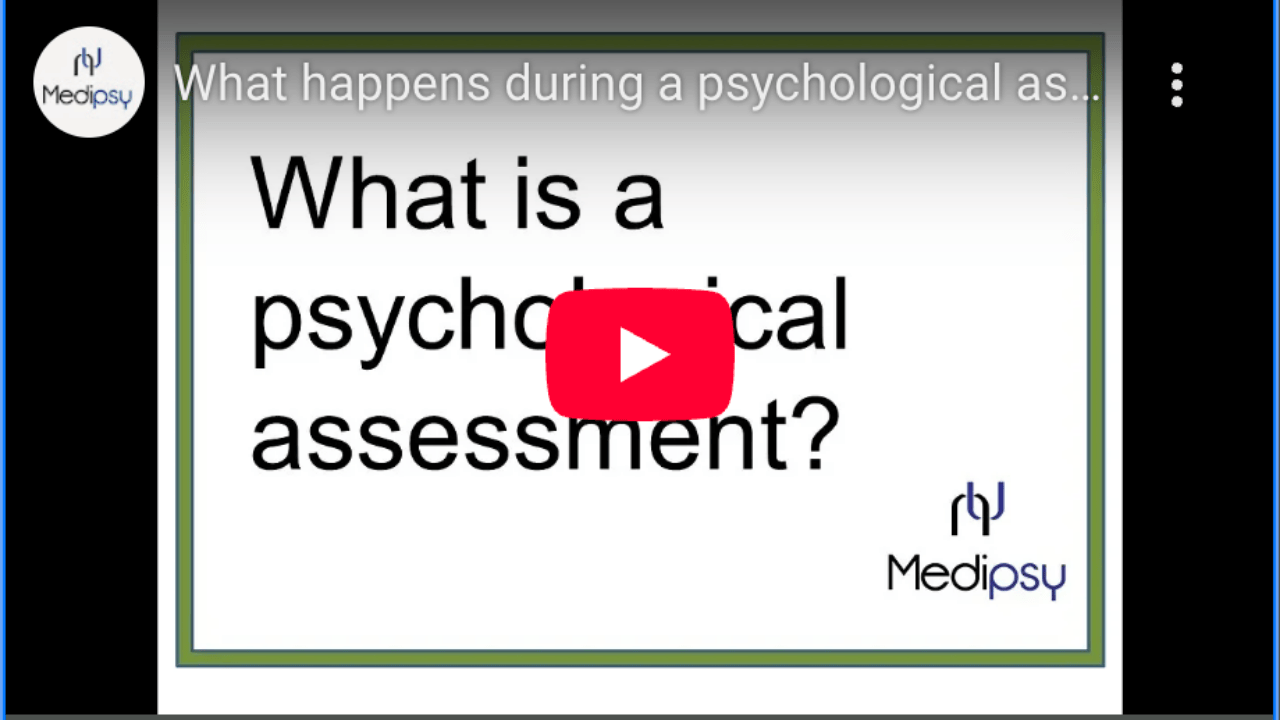
Online Psychological Assessments & Testing in Ontario
We provide comprehensive mental health assessments and testing so that you can understand your mental health symptoms and get the support you need.
Start Your Journey with an Online Psychological Assessment
We understand how difficult it can be to find the right support for your mental health. Reaching out for help is not easy. We are here to make it easy.
With an online psychological assessment, you can better understand your mental health symptoms and get the support you deserve.
Our team offers a range of assessments that can be conveniently accessed from the comfort of your home.
Book a free consultation to see how we can help.
Meet Our Online Team of Therapists in Ontario
How do I get started with an Online Psychological Assessment?
Don't let your mental health hold you back any longer. Take the first step towards feeling better.
Book a free consultation with us today by clicking the tab below. Our clinical directors will meet you and help you see if a psychological assessment would be helpful.
Learn about our fees for psychological assessment at Virtual CBT.
Who Are the Psychological Assessments For?
We offer online assessments for people who live in Ontario and are:
Ages 18 and up. Our psychologist can provide diagnostic assessments to people who are 18 years of age and older.
Ages 10 to 17. We provide mental health assessments for kids and teens. A registered social worker or psychotherapist who works with youth completes these assessments. We help with things like anxiety, low mood, self-esteem, and school-related stress. Please note that we do not complete ADHD assessments to people under the age of 18.
All assessments are done online, so you can talk to someone from the comfort of home. We’ll walk you through the process step-by-step and make sure you feel supported the whole way.
What is a Psychological Assessment?
Comprehensive Mental Health Assessment. A thorough process to understand your mental health. The therapist will help you understand your emotions, behaviour, and thinking.
Standardized Tests. Our therapists use specific tests and tools to measure different aspects of mental functioning.
Interviews. Includes talking to the individual and sometimes family members to gather information.
Observation. Watching how a person behaves in different situations.
Personalized Plan. The results help create a personalized treatment plan.
What Happens During a Psychological Assessment (Source: Les Services Psychologiques Medipsy Psychological Services)
What Types of Psychological Assessments Do We Offer?
We offer online psychological assessments to help people understand what they’re going through. Assessments can also help you figure out the best next steps. Trained professionals licensed in Ontario complete all assessments.
Here are some of the most common types of assessments:
ADHD Assessments for Adults.
For people who have trouble with focus, organization, or staying still. Clients must be 18 years of age or older for ADHD assessments.
Learn more about ADHD therapy and Anxiety vs ADHD.
Mental Health Assessments.
If you're feeling overwhelmed, anxious, sad, or not like yourself, this can help you find answers.
Diagnosis and Treatment Planning.
We help figure out what might be going on and what kind of support could help.
Assessments for School (College or University) or Work.
Some people need help getting support at school or work. We provide reports that can help with that. Please note that we do not conduct assessments for WSIB.
Second Opinions.
If you’ve had an assessment before and still have questions, we can help clarify.
Anxiety Assessments.
For people dealing with panic, constant worry, or fear that gets in the way of daily life. There are many type of anxiety disorders. An assessment can help with finding the best treatment.
Learn more about anxiety therapy.
OCD Assessments.
We assess obsessive thoughts and compulsive behaviours . The assessment can help you understand what’s happening and what can help.
Learn more about OCD therapy and Could My Thoughts be OCD?
PTSD and Trauma Assessments.
For people who’ve gone through something distressing and are feeling stuck, jumpy, or numb.
Learn more about trauma and PTSD therapy.
You’ll get a written report that’s easy to understand. You can share it with your doctor, school, or employer if you want.
7 Benefits of Online Psychological Assessments
Understand Your Strengths and Weaknesses. Assessments can help you understand what you're good at and where you might need help. This can be useful in school, work, and daily life.
Create a Personalized Treatment Plan. After your assessment, you can create a treatment plan that's just for you. This plan can include therapy, medication, and other strategies to help you feel better.
Improve Relationships. Understanding your thoughts and feelings can help you communicate better with others. This can improve your relationships with family, friends, and coworkers.
Boost Self-Esteem. Knowing more about yourself can help you feel more confident. You can focus on your strengths and work on your weaknesses, which can boost your self-esteem.
Enhance Academic and Work Performance. If you know what challenges you face, you can find ways to overcome them. This can help you do better in school and at work.
Early Intervention. If there are any issues, catching them early can make a big difference. Early intervention can prevent problems from getting worse and help you get back on track faster.
What to Expect at a Psychological Assessment
Initial Interview:
You’ll meet with a psychologist or therapist who will ask you questions about your background, health, and any problems you're experiencing.
This helps the psychologist understand why you are seeking help.
Standardized Tests:
You may take tests measuring different aspects of your mental health. This may include things like memory, problem-solving skills, and emotional functioning.
These tests are usually written or on a computer.
Behavioural Observations:
The psychologist might observe how you behave in certain situations.
This can happen during the interview or through specific activities. The purpose is to understand your behaviour.
Questionnaires:
You might fill out questionnaires about your feelings, thoughts, and behaviours.
Sometimes, family members or teachers might also complete questionnaires to provide additional perspectives.
Feedback Session:
After the psychologist gathers your information, they will meet with you to discuss the results.
You’ll learn about your strengths and areas where you might need support.
Treatment Recommendations:
Based on the assessment, the psychologist will suggest a treatment plan tailored to your needs.
This plan might include therapy, medication, or other strategies to help you improve.
Confidentiality:
Everything you discuss and the results of your assessment are confidential.
The information is only shared with others if you give permission, except in cases where there is a risk of harm.
Online Psychological Assessments: Frequently Asked Questions
-
To prepare for a psychological assessment, make sure you:
Bring any important documents or previous test results.
Be ready to answer questions about your medical history.
Bring a list of your current medications.
Try to relax and be honest during the assessment.
Take note of your mental health symptoms.
Take note of your past experiences with mental health professionals.
-
No, a psychological assessment is not usually covered by OHIP. But, many private insurance plans cover it. It's best to check with your insurance provider to see if they can help with the cost.
If you can't afford a psychological assessment and don't have benefits, it's best to see a psychiatrist. OHIP covers assessments by a psychiatrist.
-
A full psychological assessment usually includes:
An interview with a psychologist.
Questionnaires or surveys about your thoughts, feelings, and behaviours.
Tests that measure your thinking abilities, like memory, problem-solving, and attention.
Observations of how you act in different situations.
-
During a psychological assessment, a psychologist may ask questions about
How you feel daily
Changes in your mood or behaviour
Problems with memory or concentration
How you handle stress or difficult situations
If you've experienced major life changes recently
History of trauma
Social connections
-
The length of a psychological assessment can vary. It might take a few hours to complete, but sometimes it can take longer, especially if it includes multiple tests and interviews.
-
A psychological assessment is a broader process. It includes interviews, questionnaires, and observations to understand your mental health.
Psychological testing is a part of the assessment. It involves specific tests to measure things like intelligence, memory, or personality.
-
Psychological testing is generally reliable, meaning it gives consistent results over time. But, the accuracy can depend on factors like:
The type of test
Administration by the psychologist
Honesty of the person taking it






